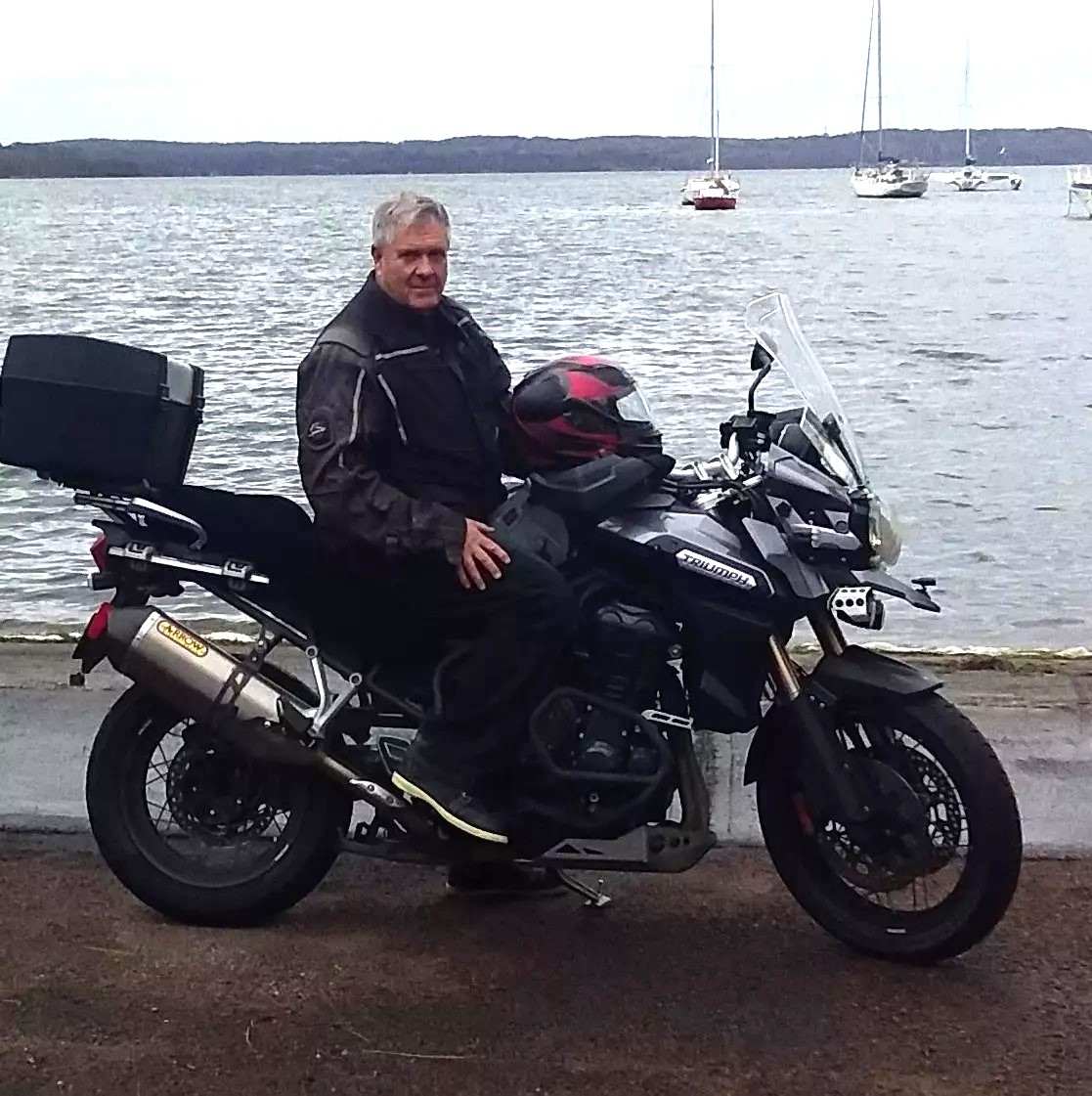summer reading 2023-24: 5 great reads from 5 local authors
Mrs Masek's Marionettes by Lyn Levy - The Propeller Keeps Turning By Captain Liam Gavin - The Nature Of North Head: A Naturalist's Guide And Ambling Companion By Peter Macinnis - Queenscliff Surf Life Saving Club - A Century Of Vigilance And Service By Brian Dolly - Accidental Strike Team By Andrew Nelson
Mrs Masek's Marionettes
by Lyn levy
''When I first met Iva (pounced Yva) Masek in the early 1980's her exuberance and optimism immediately captured my attention. The intrigue captured by her lilting Czech accent, her readiness to laugh and the wink of amber in her hazel eyes was heightened by the fragments of her story that fell into the conversation, giving glimpses of extraordinary successes, but also of great upheaval and sadness.As I watched her stride off to her next encounter, her long dark hair swinging with each jaunty step, I was struck by the conviction that her life was a book waiting to be written.As the years progressed and Iva's successes multiplied, I became even more convinced of this. When, decades later, she was planning to return to her Czech homeland for the last time, I realised that if her story was to be recorded, then it was I who must do it, and if I was going to do it justice, I needed to see her in her birthplace. Travelling there, soon after to be immersed in the surrounds and the company of her origins, I explored the culture and character of a unique people springing from a fascinating history.Even though I had known Iva for 30 years, new shades of her personality constantly emerged in Czech - the ease with which she slipped into her native tongue and her comfort amongst Brno's blend of medieval grace, modern simplicity and drab communist blockhouses. Revisiting the ancient streets, fine theatres, crowded bookshops and galleries of Czech's second city seemed to infuse Iva with her own young blood. Her ballet school, still standing solid and proud on a busy corner of the Old Town, drew a sigh of nostalgia as she recalled the childhood performances which gave her the first taste of the stage. A regional gymnastics competition took her back to her teenage years, when she had leapt and whirled amongst an international elite. The picturesque lake, the setting for her first experience of young love, left her subdued and somewhat wistful. The cobbled streets where she had skipped as a child and marched shouting anti-Russian slogans as a young woman, are largely unchanged.It was during this visit that Iva's lifelong friend, Zora, presented her with the letters in which Iva had recounted the traumas and joys of her first years in Australia -- the place she had fled to as a newlywed in search of freedom.These letters form the heart of this account.Being entrusted with Iva's story has been a privilege. In seeking to be faithful to its telling, I have tried to capture the charm of her Czech accent and her characteristic sayings and speech patterns. Her first language still colours and conveys her way of looking at the world.''
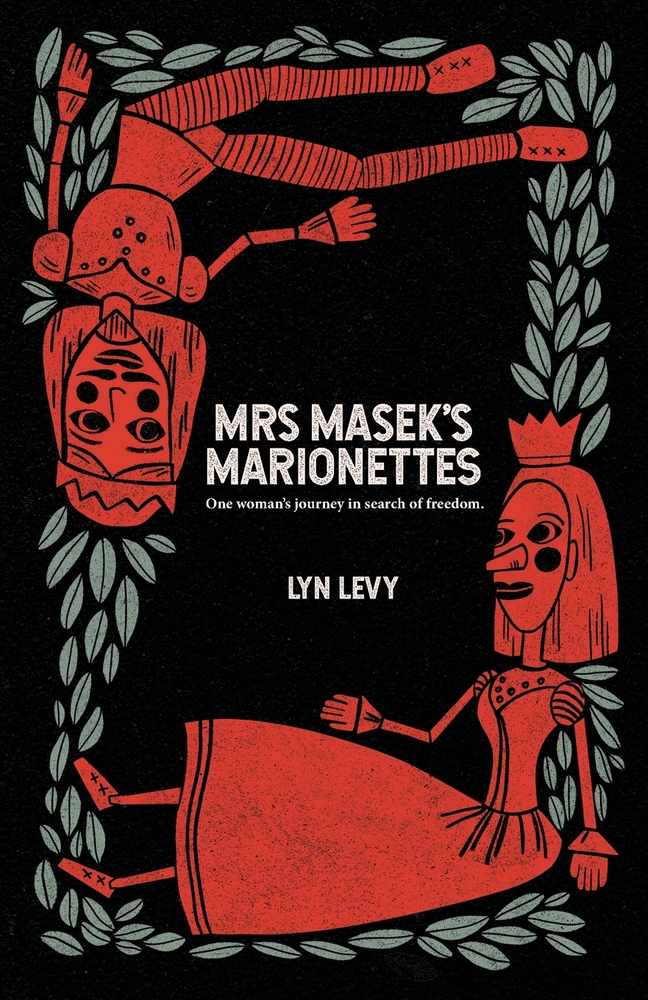
The Propeller Keeps Turning
by Captain Liam Gavin
Review by Captain Allan
(Allan Porter ‘The Ancient Mariner’)
(Capt. Gavin is a Mona Vale resident)
Available on Amazon: $57.20
Autobiography
The stories that mariners can tell of their lives at sea are legendary. I know that, being one of them I’ve told quite a few myself. But there’s none better than in a book I’ve had the great pleasure of reading by Captain Liam Gavin who’s written his story of life at sea as he worked his way to becoming Master Mariner and later, Harbour Master Sydney Ports and College Lecturer.
Captain Gavin’s book, The Propeller Keeps Turning has a subtitle on the front cover saying ‘A riveting tale of adventure and excitement on the high seas’, about which there is absolutely no doubt if we just read the opening pages –
After tying up in Philadelphia, at some early hour in the morning, my wife Barbara, the deck cadet and myself went ashore for lunch. Philadelphia is a frequent port on our route and a nice place to visit. We had decided to go uptown and visit Independence Hall and view the Liberty Bell nearby and have a walk along Market Street. As we left the commercial port proper, we passed a pub and being mariners decided to get a quick one in. The customers were a few locals mixed in with longshore men off shift. Longshoremen are also known as stevedores or dockers or wharfies depending on what country the ship is docked. The beers were cold and inviting, as we settled into a second round I noticed about two tables to my left that an argument was developing between two well-oiled longshore men and an older woman. In simple terms it was nothing more than a slagging match and the two men were leading the charge.
Suddenly I noticed the lady pulled a gun from her purse and upped the ante. One of the longshoremen reacted by pulling out his own gun. Suddenly shots rang out. Our only escape to safety, as the fracas blocked the doorway, was to take refuge behind the bar. We must have been slow off the mark, because when we got behind the bar, we were greeted by two other longshore men who had already taken the same cover. So now there are five of us sitting on the floor with our backs to the bar listening to the ensuing shoot out. One of the longshore men asks if we would like a beer. I suddenly noticed both had full pints in their hands. He raised his hands over his head and sourced some pint glasses and in seconds we were enjoying free beer. He had already filled a second round for us all when we could hear the approach of police sirens. I said to my companions we cannot afford to be associated with this nonsense and have to depart. We knocked back our pints at a hundred miles per hour, said our thank you and farewells, and made a mad burst for the door …
There are many more equally entertaining stories, of running ships at high speed through pirate fleets, of breaking free of hostile blockades, all in a world where work, learning and career were all wrapped into an exciting ocean environment. It’s the sort of riveting yarn that might sound like a Hollywood blockbuster but they are true facts of a working life from the Captain’s own records.
Growing up in County Tipperary, Ireland it was at school in Dublin where, as the author says … ‘I freely admit the seed was planted after reading Captain Blood and I had decided I was going to sea to become a ship’s captain’.
But there was a long hard road yet to follow from the time while still at school of making the first enquiry about going to sea.
It was Irish Shipping, a small national line with about a dozen ships, mostly bulk carriers and a sprinkling of cargo ships, that came up with an offer. With a foot in the door, there was some time for celebration but it was only short-lived as it quickly became clear that it was not going to be an easy slog to become a ship’s captain.
‘At this stage my plan to pick an occupation with not too much learning was being blasted out of the water… It was already explained to me that I had twelve long years study ahead of me in order to acquire the Master Mariner’s Unlimited Certificate’. But like anything in life, when you want to do something it becomes a driving force to achieve and that the would-be Captain did well within the time.
The content page of this very engaging and enjoyable book lists all the stages of working through a life at sea and ashore and the resourcefulness that professional mariners have in being available, taking advantage of and making use of whatever work comes their way. From working the fast container ships of the Danish Maersk Line, coastal shipping, tug boats and the offshore oil and gas industry.
When you have experienced a good part of the world in your career there’s reason to think what the rest of the world would be like. And that’s where the options came to mind, of places to go, to live and work. And so in 1988, the author, wife and two young children arrived in Australia.
‘If you are pondering emigrating to foreign parts without a job lined up and leaving a good paying job with two young children in tow then stop now and rethink matters. We landed in Sydney late on a hot and humid night…’
For work, first there were the ferries and the charter boats on Sydney Harbour …
‘I had noticed on my first day when we went around Darling Harbour where all the cargo ships were working cargo that the cruise commentator had nothing to say. Therefore, when the circumstances led to my additional responsibilities to provide commentary, I stopped next to a large cargo ship and explained what was happening as regards discharge and how many tons were being lifted out in the grabs and the requirement for trucks to be in place to take away the bulk cargo. At the end of the cruise, I received accolades from the passengers saying how much they enjoyed the working port commentary...’
Later there were cargo management jobs then Deputy Harbour Master and Harbour Master, Sydney & Botany Bay and as an educationalist in Australia and overseas. And this is where the adventure and excitement that the book has hitherto provided in abundance becomes one of intrigue as the author manages professional & industrial disputes, result of what’s happened on the waterfront and works to fine tune the educational hierarchies in other countries.
Everything, from start to finish is spelt out in clear detail, ‘an unvarnished autobiography’ it says in the introduction, all the good and the bad, the humour, the characters we meet, the disputes including those that happen by the unfortunate action of the few in port.
And one of the great things that made this autobiography possible. ‘… my sister sent me all the letters I had ever written to my parents over a thirty-two-year period. I finally read them almost eighteen years later and realized I had a treasure trove of so many things, including events and descriptions of places’.
With all good autobiographies, those that keep the reader in mind with catchy page-turning prose and tell a great story are always good to find. The Propeller Keeps Turning is one of them. Available – Kindle or Paperback (full colour)
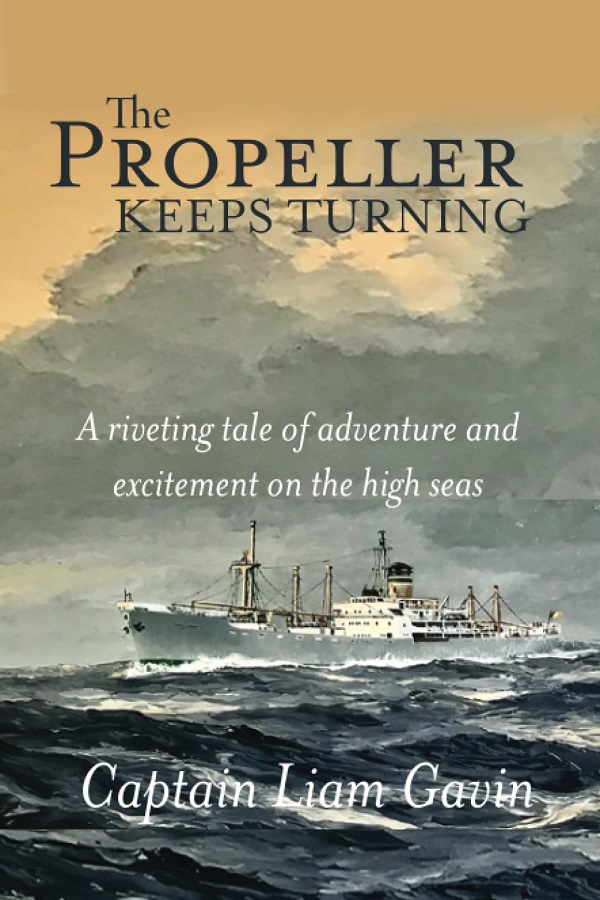
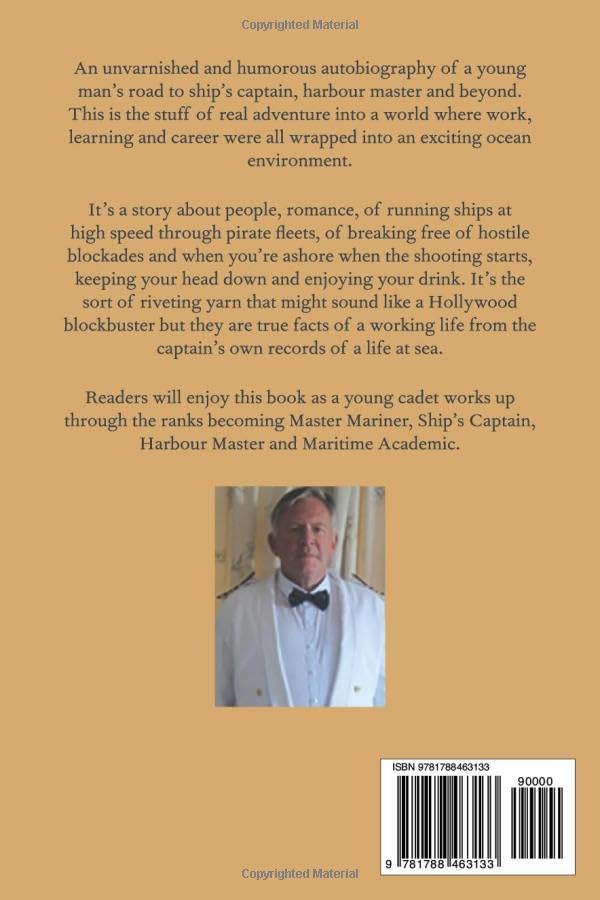
The Nature of North Head: a naturalist's guide and ambling companion
by Peter Macinnis
Kindle version: $5.00
Paperback: $20.00
Mobile phone edition: $3.00
E-book: $3.00
Science - walking companion book available
The notion of a vade mecum (it literally means "go with me") has largely disappeared from use, but this ebook is a guide for strangers and locals to carry on phone or tablet when they visit one of Australia's biological wonders, a place where 500 species of plant live on 250 hectares (a square mile in old currency) of desperately poor sandy soil, along with an amazing range of animal and other life forms. The vade mecum is back!
People entering Sydney Harbour or taking a ferry to Manly see North Head to starboard, and admire the 80-metre cliffs, but they don't realise that they are looking at a sand-tied island, a piece of rock which is over 200 million years old, and even the locals don't know.
These are my personal thoughts and footnotes, circling around a lovely place, North Head, at the entrance to Sydney Harbour. Less than 10 km from the central business district of a city of 5 million people, we have an island of wilderness with animals and plants that reflect what the area was before my mob invaded it in 1788. Here you will learn about the geology of the area, something of its history and Indigenous past, and a great deal about the life forms that live here. I look at the bacteria that make manganese stains, lichens, slime moulds, fungi, mosses, liverworts, ferns and flowering plants including orchids and some carnivorous plants. I also look at the spiders I gave met on the headland, the insects ditto (including the bird of paradise fly!), birds, frogs, reptiles and mammals.
I work on North Head as a volunteer, doing weeding, planting and other stuff to help maintain a fragile system, but I am also a lifelong educator, and wearing that hat, I decided to generate the web site referred to above, and host it myself. It was to show the casual visitor just how much more was available to be seen. Because I always travel with at least one camera, the web site was soon bloated with pics, so during one of our escape-from-lockdown rambles, I decided to do an e-book version that people can carry around. I have also added a great deal of extra information, even more images, and some internal navigation in the form of jump links. North Head has become a popular place for walking during pandemic times, but until you read this, you will have no idea how much more is going on, all around you.
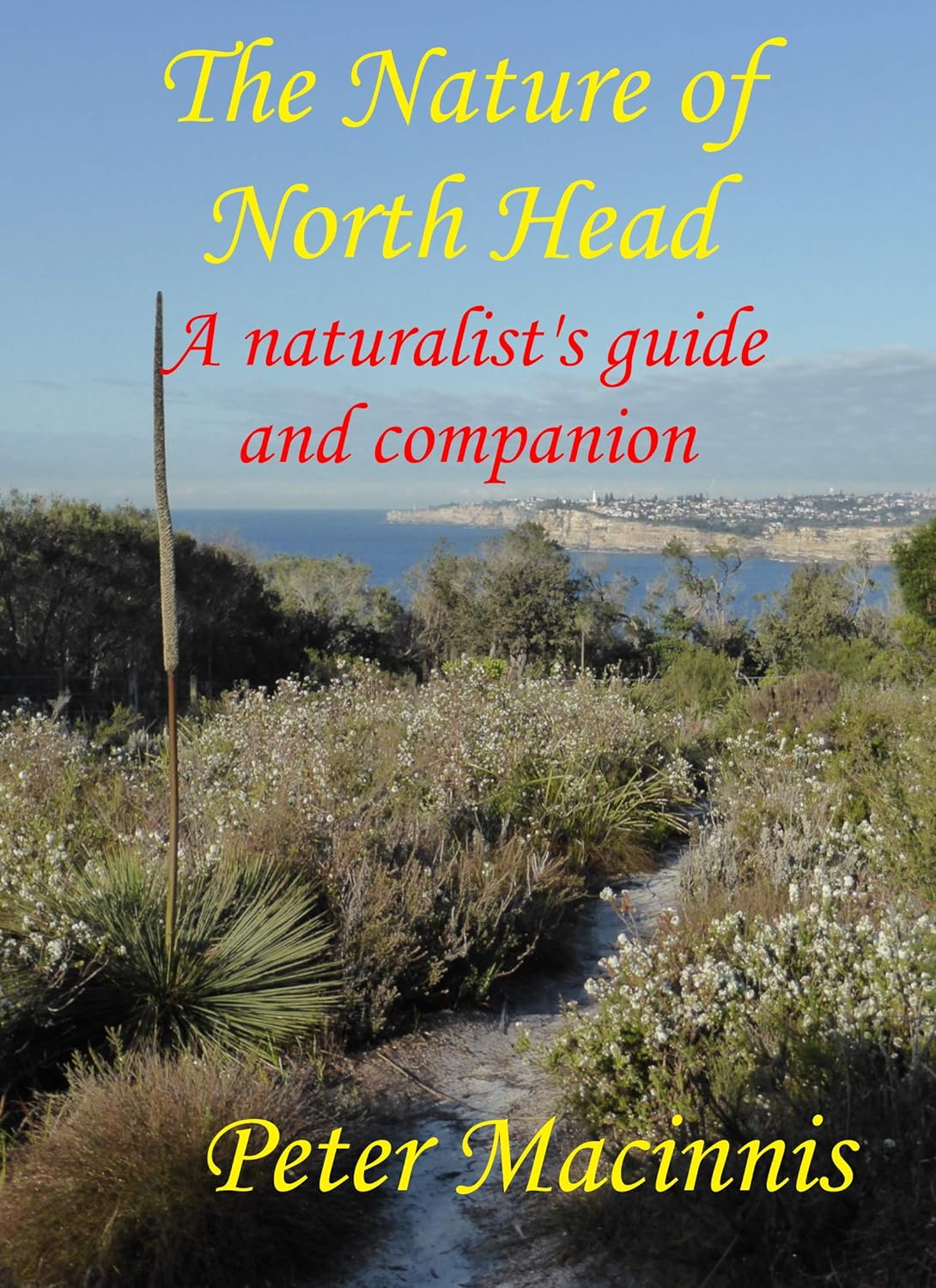
About Peter
Peter Macinnis turned to writing after his promising career as a chiaroscuro player was tragically cut short by a caravaggio crash during the Trompe L'Oeil endurance race. He recently did remarkably well in the early rounds of the celebrity underwater cooking program, Moister Chef, but he was disqualified for using dried fruits and desiccated coconut. He has a pet slug which has lived in a jar on his desk for the last six months, as part of another book, and he is an expert echidna handler and ant lion wrangler. He wrote both the score and the libretto for the acclaimed opera Manon Troppo (‘Manon Goes Mad’).
OK, most of that is total fiction, but the wildlife bits are true: I DO handle echidnas when necessary, and I am expert in managing ant lions (the slug has since been released into the wild). I live in Australia, but I travel a lot, mainly gathering ideas for new books, and in the last couple of years, I have been on glaciers and inside a volcano (I collect volcanoes, you see). I also spend a lot of time in libraries, and sometimes in the field, because my two main areas are history and science.
I have learned the hard way to choose my locations: one book that came out a few years back needed some stuff on tardigrades ("water bears") and one easy way to catch them is to use a small hand-held vacuum cleaner to grab them from trees — these are very tiny, about 0.4mm long if they are big, so effectively invisible.
I live on a main road, and one day, without thinking too hard, I wandered out and started vacuuming a tree. It worked, but I'm afraid I got some odd looks, some of them from drivers who should have been watching the road better.
I write for both adults and children, though I seem to get more awards for the stuff I write for children.
With a double major in botany and zoology, some time as a National Parks ranger, and trained as a teacher, I spent more years as a working bureaucrat than as a classroom teacher (though that was 11.5 years in Chalkland, and I have never stopped educating: when people asked me "What do you teach?", my cheery answer was always "children!").
I have always been a naturalist and enquirer into curious things, I am an obligate writer and story-teller. I spent 5 years as an educator at the Powerhouse and the Australian Museum, informing adults, teenagers and tinies. I am a volunteer “visiting scientist” (under a CSIRO program) at Manly Vale Public School on Sydney’s northern beaches. I often take adult groups on show and tell walks.
Peter is a science writer, and has also been a teacher and museum educator. The author of twenty books for adults and children, Peter has just completed The Nature of North Head. The work covers the history, geology and biology of North Head, one of the sentinels guarding Sydney Harbour. As a volunteer in the plant nursery there, and as a trained biologist, I have detailed knowledge of the lower and higher plants, the invertebrates and the vertebrates, as well as the geology of the area. This is a guide and companion for walkers and wanderers.
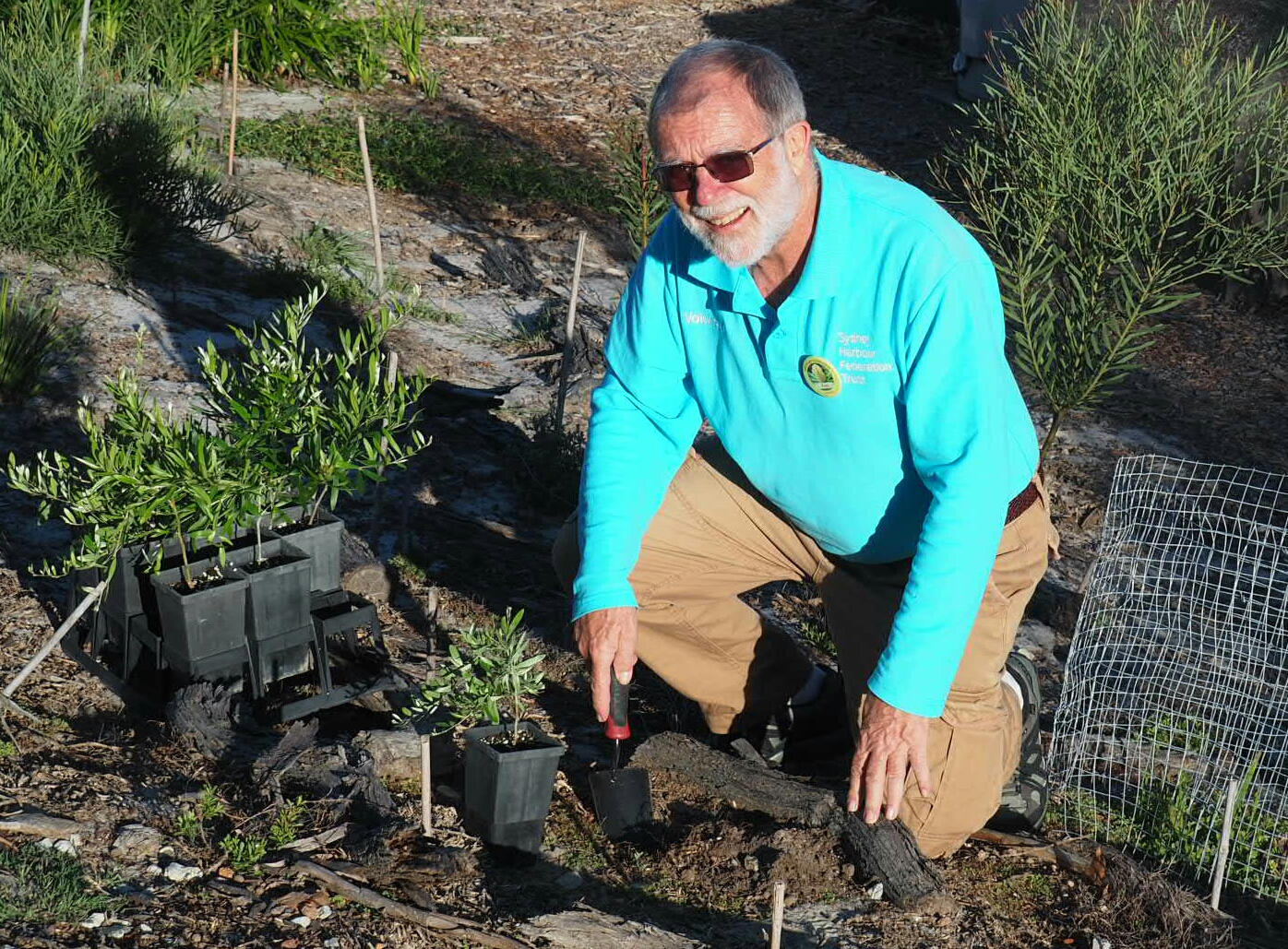
''There's more to bush regen than planting, but weeding reflects cruelty to plants :-) '' - Peter Macinnis
Queenscliff Surf Life Saving Club - A Century of Vigilance and Service
by Brian Dolly
Our book which is recognising and celebrating 100 years of Queenscliff SLSC, 1924-2023 is approximately 85,000 words, 1,000 photos and over 400 pages with a report on each decade, covering general activities, social, lifesaving, competition, three clubhouses, and the people that made it happen.
The book launch was Friday, 1st December 2023.
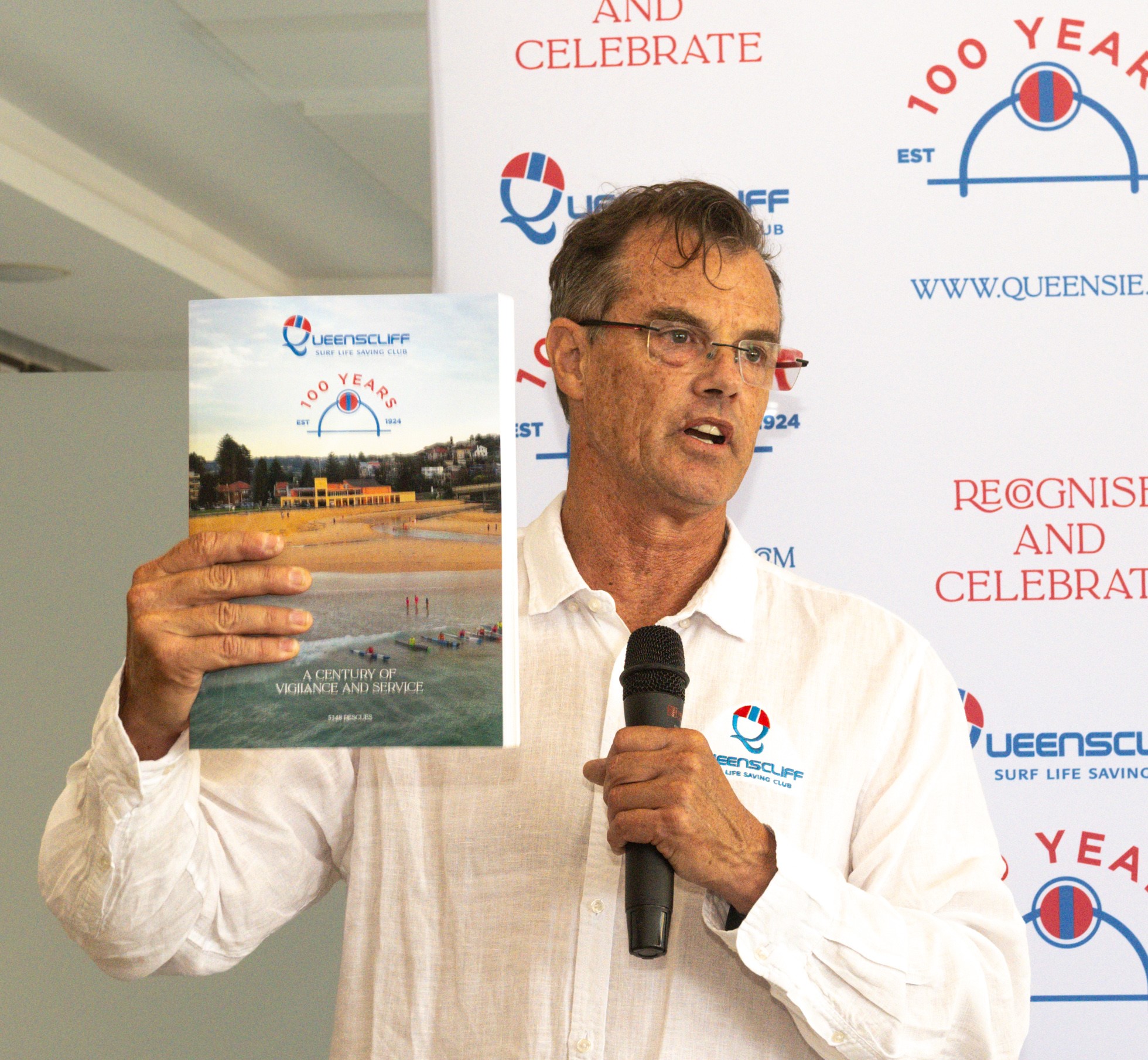
Brian Dolly with the 100 Year Queenscliff SLSC book
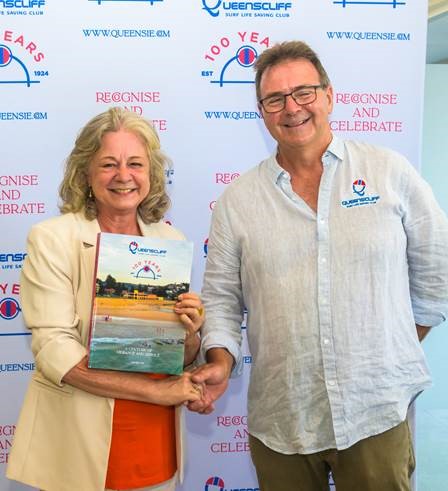
Queenscliff SLSC President Garry Fox with Mayor Sue Heins at Launch
Five were auctioned at the book launch on 1st December and the remaining five will be auctioned at the All Ages Club Fiesta Party on 14th January 2024 (the last day before the club turns 101 years old). We will be holding 50 standard copies for the 14th January to be sold after the auction, so if you made a bid and miss out on a hard cover, we will have a soft cover available for you to purchase.
Available now for $75 incl. GST for Soft Cover version or $150 for Hard Cover version.
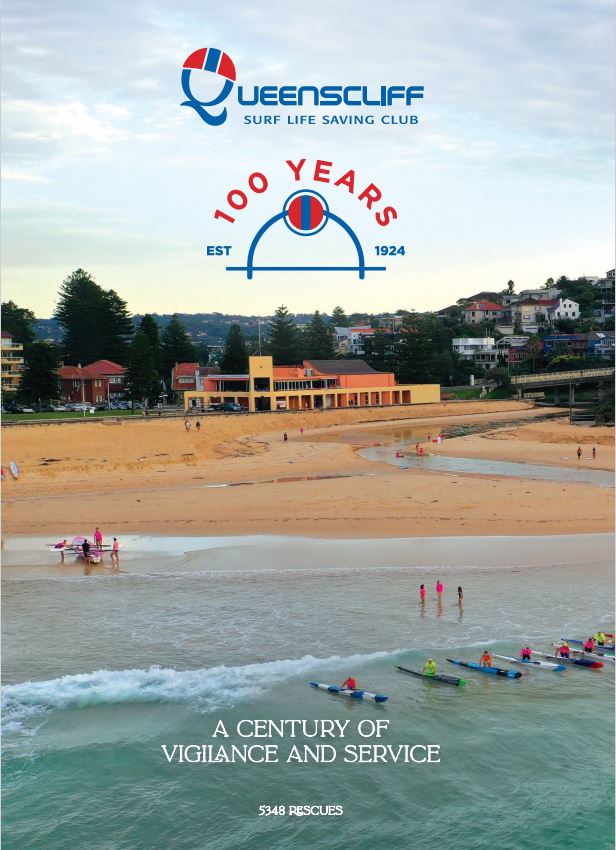
Queenscliff beach is situated at the northern end of the world famous Manly beach. The Queenscliff Surf Life Saving Clubhouse is located just south of the lagoon and has been providing surf life saving activities since 1924.
The first Queenscliff SLSC clubhouse was opened by Andrew ‘Boy’ Charlton on 4 October 1924.
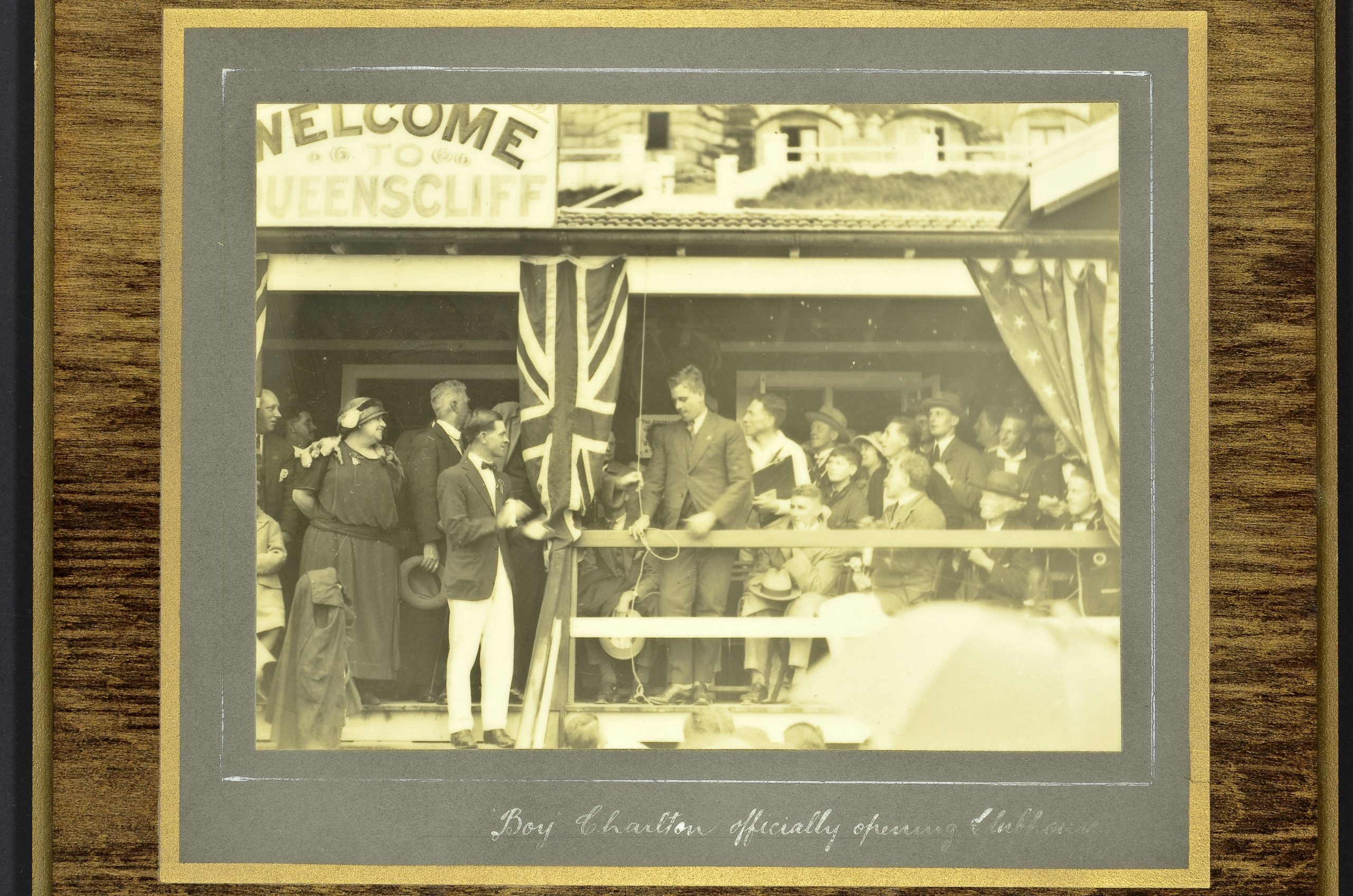
The second clubhouse was opened on 1 April 1939 by the Minister for Local Government, Hon E S Spooner. The building was designed by Lindsay Scott. The present clubhouse was opened by Mayor of Manly, David Hay on 18 June 1983.
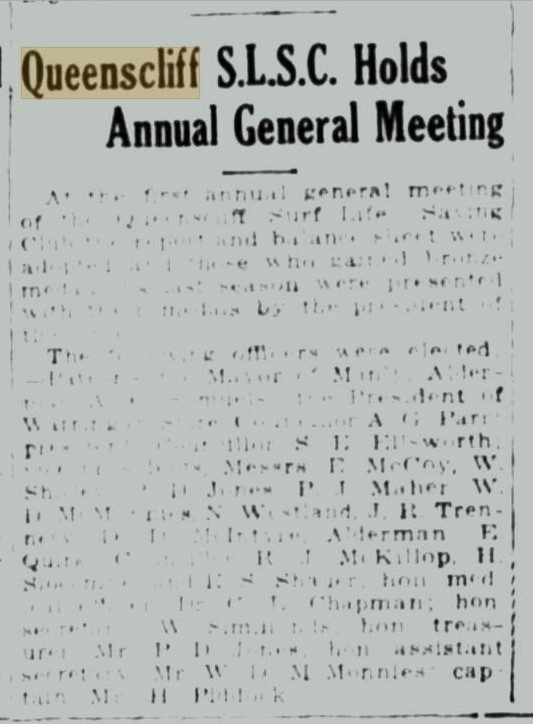
Queenscliff S.L.S.C. Holds Annual General Meeting (1924, September 17). The Labor Daily (Sydney, NSW : 1924 - 1938), p. 2. Retrieved from http://nla.gov.au/nla.news-article236548548
DOINGS AT QUEENSCLIFFE
Queenscliff march past team gave the new costumes an airing during the weekend. The costumes, with the club colors, blue and red, with a big Q on the chest of each, looked very fine, and much praise was given to the designers. A practise drill was held under Captain Hawthorn, who was very pleased with the work of the team. It will not be his fault if the club does not gain some of the big prizes this season. The marching of the team was excellent.
The club's annual carnival is to be held early in January, and officials and members are already working on last year's biggest job. Something special and original is being handled by the senior officers. Ranking with anything of its kind on the coast, the casualty room is now complete. In conjunction with Dr Dick, the club has a fully equipped first aid room, and is ready to treat any injury or accident. SURFING (1929, November 23). Evening News (Sydney, NSW : 1869 - 1931), p. 2. Retrieved from http://nla.gov.au/nla.news-article119009799
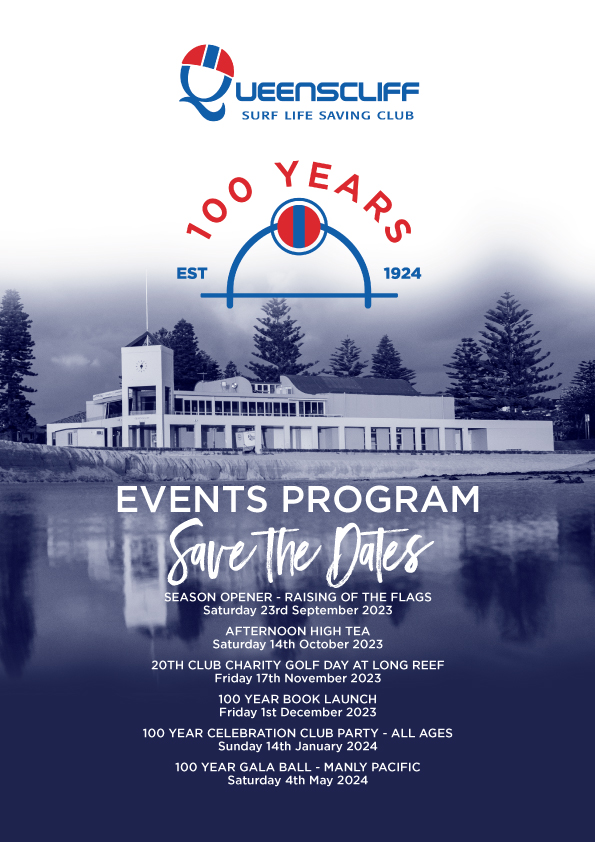
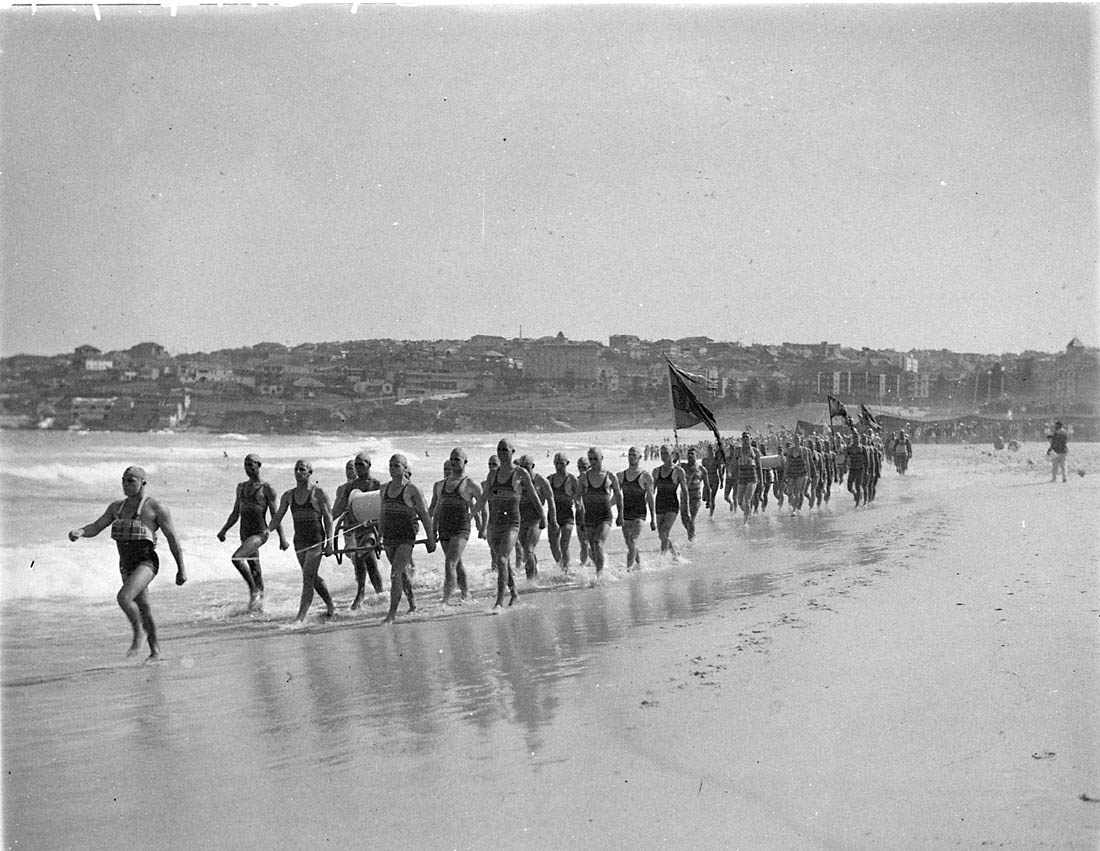
Queenscliff in 1930's, photo by Sam Hood ( 1872-1953) photo courtesy Mitchell Library, State Library of New South Wales
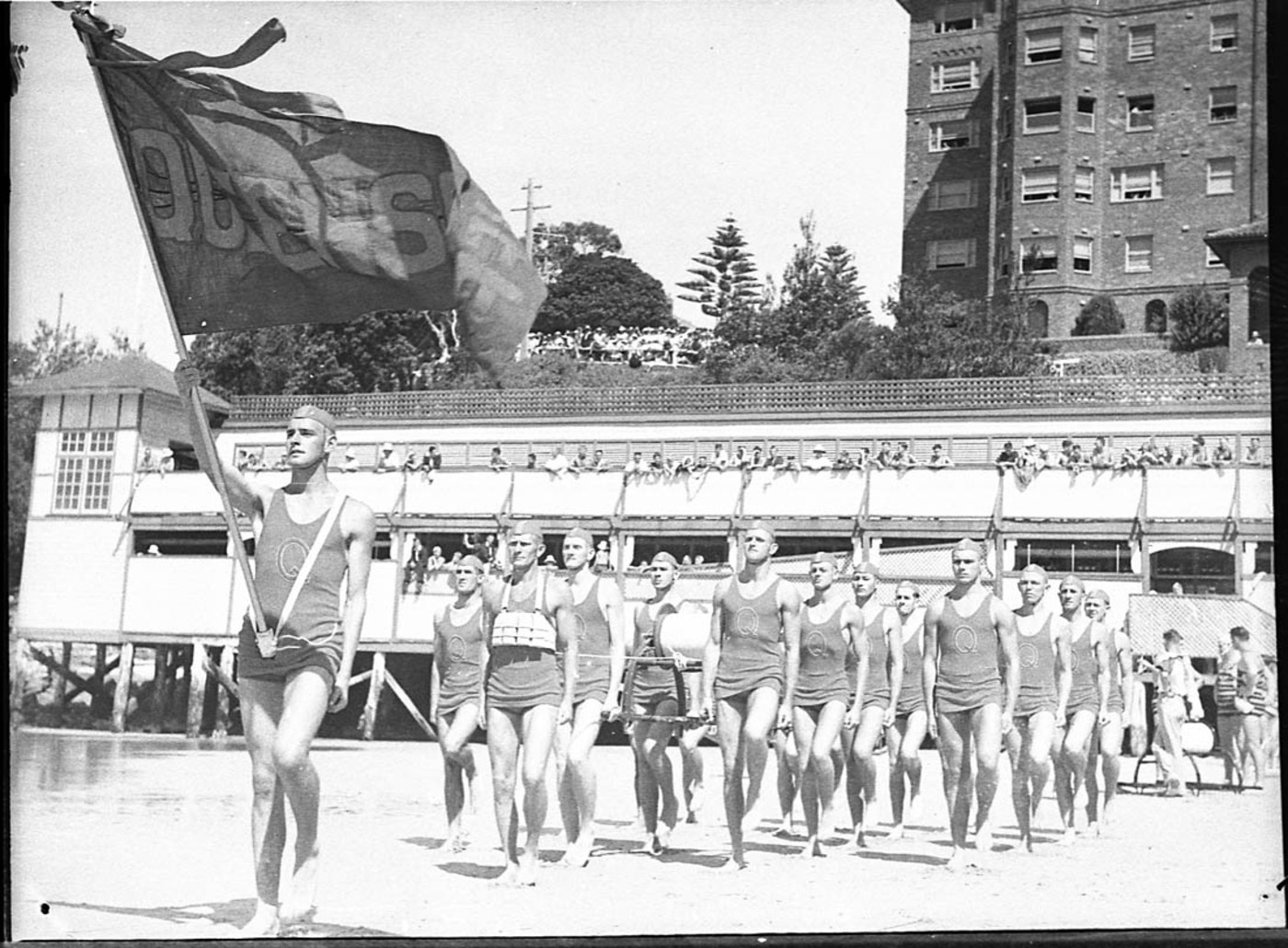
Queenscliff Team, Manly Surf Carnival, 30/1/1937, from album Home and Away, photo courtesy Mitchell Library, State Library of New South Wales
Accidental Strike Team
His safe, ordered world has disappeared
By Andrew Nelson
Booktopia e-book: $5.99
Booktopia paperback: $24.75
Crime-Thriller - Fiction
Joe Burnett was living the dream; retired young from the corporate world and volunteering with his local fire brigade.
It didn't last.
First the black summer fires sweep through, then strangers start shooting at him, then he meets the mysterious Jessica. He's barely had time to walk his dog before his safe, ordered world disappears, and he crashes head-on into a merciless international criminal organisation and the corruption it propagates.
About the Author
I wish I could be cool like Joe Burnett, the hero of The Accidental Strike Team. Unfortunately, I am considerably older and way more pedestrian than Joe. After a successful career as a contract accountant, I left Sydney for the shores of Lake Macquarie with my wife, Maria and our dog Bear. However, I still return to Pittwater to take part in Palm Beach Sailing Club regattas - it's my hearts home.
I'm a rookie with the local RFS Brigade and a keen small boat sailor, I found time to write this, my first novel, a dream I have cherished for decades. I hope you enjoy it!
Happy Reading
Andrew Nelson
PS I borrowed Joe's bike for the photo shoot.
